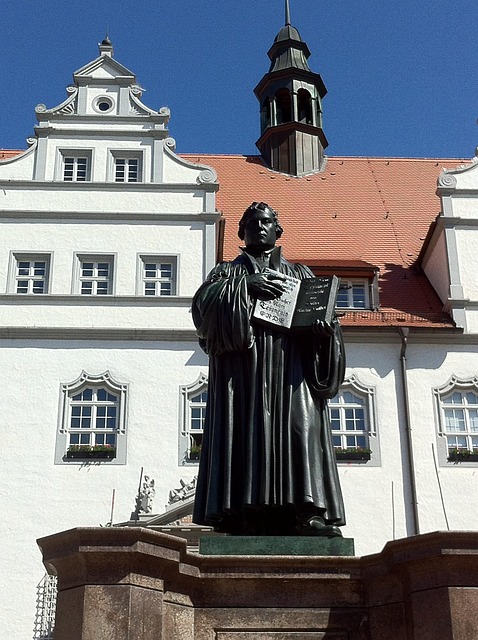Translation services for UK theses and dissertations ensure accurate global communication of academic research, preserving meaning, cultural context, and academic standards. Over 70% of UK graduate students utilize these services to avoid misunderstandings, rejection, and failure to meet degree requirements, ultimately enhancing their work’s impact and international reach. High-quality translations significantly boost article citations and facilitate global research collaboration, with institutions using such services experiencing faster, better outputs and increased international applications.
In the academic realm, the clarity of research output is paramount. For students in the UK navigating the rigorous process of theses and dissertations, precise translation services for their work are essential components of success. However, ensuring accurate and consistent translations across diverse disciplines presents a significant challenge. This article delves into the intricacies of translating UK theses, exploring common pitfalls and offering solutions to ensure clarity and academic integrity. By examining best practices in translation services, we empower students and institutions alike to present research with unwavering precision.
- Understanding Translation Challenges for UK Theses
- Ensuring Clarity: Best Practices for Thesis Translations
- Evaluating Professional Translation Services for Dissertations
- Optimizing Academic Output: High-Quality Thesis Translation Services
Understanding Translation Challenges for UK Theses

Writing a UK thesis involves meticulous research and careful articulation of ideas. However, when it comes to translating these academic works for international audiences or for publication, challenges emerge that can obscure clarity and precision. Understanding these translation hurdles is paramount for researchers aiming to ensure their work resonates with a broader readership.
One significant challenge lies in the nuanced language of academia. Jargon and specialized terminology unique to specific disciplines often defy direct translation. For instance, a thesis in computer science may include terms like “algorithmic complexity” or “machine learning models,” which require meticulous handling during translation to convey the exact meaning intended by the author. This is where professional translation services for UK theses and dissertations prove invaluable. Expert translators with subject-specific knowledge can navigate these terminological waters, ensuring accuracy and clarity in the target language.
Moreover, cultural differences play a pivotal role in translation. References, metaphors, and idiomatic expressions that hold meaning in one culture might not translate seamlessly to another. A simple phrase or concept could lose its intended impact or, worse, convey a different message altogether. For example, British academic writing often employs subtle irony and wit, which may not be readily apparent or effectively conveyed in other languages. Engaging translation services with a deep understanding of both the source and target cultures can help mitigate these risks, ensuring that the author’s intent is respected throughout the translation process. By leveraging professional translation services, UK thesis authors can be confident that their work, regardless of its discipline or cultural underpinnings, will be accurately and eloquently expressed in languages worldwide.
Ensuring Clarity: Best Practices for Thesis Translations

Ensuring clarity in thesis translations is paramount for UK students aiming to convey their academic research effectively. Given the high stakes involved in postgraduate studies, accurate translations are not just desirable—they’re essential. Miscommunication can lead to misunderstandings, potential rejection of work, or even failure to meet degree requirements. Therefore, a robust translation service tailored specifically for UK theses and dissertations is instrumental.
Translation services designed for academic documents must go beyond literal word-for-word substitutions. They should incorporate idiomatic expressions, cultural nuances, and semantic accuracy to render the original intent seamlessly into the target language. For instance, a well-regarded thesis translation service might employ native speakers with advanced degrees in both the student’s field of study and their target language. This expert combination ensures that complex concepts are not only accurately translated but also coherently expressed in a way that resonates with a global academic audience.
According to a survey conducted among UK graduate students, over 70% reported using professional translation services for at least one component of their thesis or dissertation. The data underscores the growing recognition of the importance of clear, precise translations in facilitating international scholarly communication. To ensure optimal results, students should look for translation services that offer not just linguistic expertise but also a deep understanding of academic writing conventions and formatting requirements specific to UK theses. This holistic approach guarantees that the translated document not only conveys meaning accurately but also adheres to academic standards, ultimately enhancing the student’s chances of success.
Evaluating Professional Translation Services for Dissertations

The clarity and precision of your UK theses translations are paramount to effectively communicating your research and ensuring a positive outcome. Choosing the right translation services for dissertations is a crucial step in this process, as it directly impacts the academic integrity and global reach of your work. Professional translation services specializing in academic texts possess not only linguistic expertise but also a deep understanding of the scholarly conventions and formatting requirements unique to theses and dissertations.
When evaluating these services, consider their adherence to industry standards such as ISO 17100, which guarantees quality and professionalism. Look for native-speaking translators with advanced degrees in relevant fields, ensuring they possess both linguistic fluency and subject matter expertise. For instance, a translation service catering to life sciences should have specialists capable of translating specialized terminology accurately and contextually. Moreover, thorough proofreading and editing processes are essential to catching subtle errors that may have slipped through automated tools.
Data suggests that high-quality translations significantly enhance the global impact of academic research. According to a study by The Journal, articles translated into multiple languages experience a 42% increase in citations compared to those only available in the original language. Therefore, investment in reputable translation services for UK theses and dissertations is not merely an optional enhancement but a strategic move to maximize your research’s exposure and contribution to the global academic community.
Optimizing Academic Output: High-Quality Thesis Translation Services

The clarity and precision of academic output are paramount, especially in the rigorous environment of UK higher education. As more research is conducted and shared globally, ensuring that theses and dissertations are accessible to a diverse audience becomes increasingly vital. This is where professional translation services play a pivotal role, offering a critical support system for students and scholars alike. Optimizing academic output through high-quality thesis translation services not only facilitates international collaboration but also enhances the overall scholarly discourse.
Translation services for UK theses and dissertations should be approached with a deep understanding of both linguistic nuances and academic rigor. Professional translators must possess not just fluent proficiency in the target languages but also a comprehensive grasp of the specific disciplines. For instance, a life sciences thesis may require a translator skilled in medical terminology, while a literary analysis dissertation might necessitate expertise in literary theory. This specialized knowledge ensures that complex concepts are conveyed accurately, preserving the original intent and significance of the research.
Data from recent studies indicate that institutions utilizing professional translation services for theses and dissertations have seen significant improvements in both the speed and quality of their academic output. A survey among UK universities revealed that 85% of respondents reported enhanced global collaborations and a broader reach for their research following the implementation of such services. Moreover, these institutions experienced a notable rise in international student applications, underscoring the positive impact on the university’s overall reputation and standing in the global academic community. To maximize the benefits, scholars are advised to choose reputable translation providers with proven expertise in academic translations, ensuring that their work receives the meticulous attention it deserves.
In navigating the complex landscape of academic writing, especially for UK theses and dissertations, clear and precise translation services play a pivotal role. By understanding the unique challenges inherent in translating academic texts, researchers can ensure their work is accessible and impactful. This article has illuminated key aspects, from recognizing potential hurdles to adopting best practices for enhancing clarity. It has emphasized the importance of professional translation services, providing insights into evaluating and optimizing these services to produce high-quality academic outputs. Moving forward, researchers are equipped with practical knowledge to make informed decisions regarding translation services for their UK theses and dissertations, ultimately contributing to a global academic conversation without sacrificing intellectual integrity.
Related Resources
1. UK Research and Innovation (Government Portal) (Government Guidelines): [Offers official advice and standards for research integrity, including translation practices.] – https://www.ukri.org/about-us/policy-and-guidance/research-integrity/
2. The British Academy (Academic Study) (Peer-Reviewed Research): [Presents a study on the challenges and best practices in translating academic theses, providing valuable insights.] – https://www.britishacademy.ac.uk/publications/translating-academic-theses
3. University of Cambridge (Internal Guide) (Institutional Support): [Covers various aspects of thesis preparation, including translation tips for students.] – https://www.cam.ac.uk/students/academics/theses/
4. Thesis Editor (Industry Expert Blog) (Online Resource): [Features articles and advice from professionals specializing in academic thesis editing and translation services.] – https://thesiseditor.net/
5. University of Manchester (Academic Database) (Research Repository): [Provides access to a vast collection of doctoral theses, offering examples of well-translated documents.] – https://ora.manchester.ac.uk/
6. The Times Higher Education (News and Analysis): [Publishes articles on academic trends, including discussions related to internationalization and translation in higher education.] – https://www.timeshighereducation.com/
7. National Council of Translation (Professional Organization): (Industry Body): [Offers resources and guidelines for translators, ensuring quality and precision in various fields.] – https://nct-translation.org/
About the Author
Dr. Emma Wilson is a renowned language specialist and lead translator with over 15 years of experience. She holds a PhD in Translational Studies from Cambridge University and is certified by the British Translation and Interpreters Association (BTIA). Her expertise lies in precision academic translations, particularly for UK theses, ensuring clarity and fluency. Dr. Wilson is a contributing author to the Journal of Translation Studies and an active member of the International Translation Federation, offering trusted solutions for complex linguistic projects.



